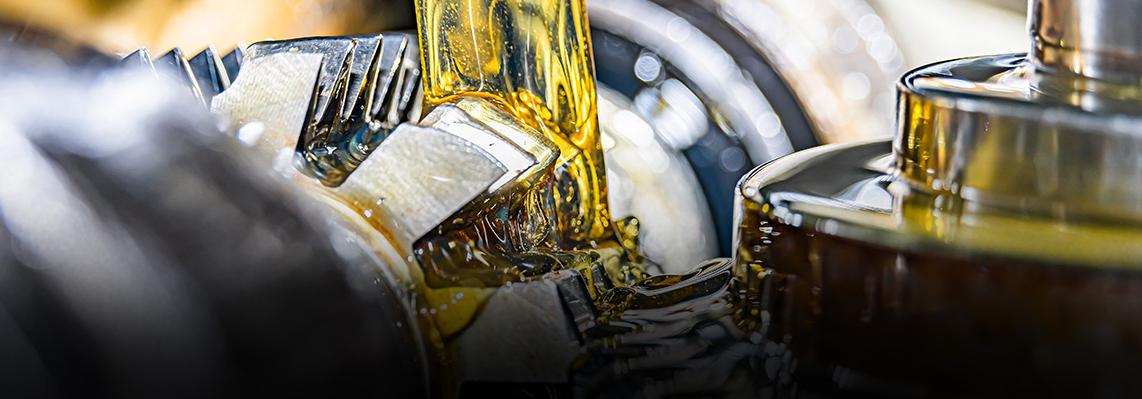Lubrication services from RS reduce the potential for costly downtime
As energy prices and associated costs rise, finding ways to reduce wastage across operations is critical for manufacturers. Given 70% of industrial equipment wear and failure is down to poor or inadequate lubrication , a robust oil condition monitoring and lubrication solutions programme should be at the core of every asset maintenance strategy.
Applying the right lubricant at the right time and in the right quantity not only reduces wastage and cost, it can significantly increase the lifespan and performance of assets. Stopping gears from grinding or keeping hydraulic systems clean is essential – every time the cleanliness of oil halves, for example, its expected lifespan effectively halves with it.
An MIT study on ‘loss of usefulness’ in machinery determined that half of lost machine life was caused by mechanical wear, and an additional 20% was lost due to corrosion of machine surfaces. With the mitigation of mechanical wear and corrosion two of the primary functions of a lubricant, having an effective lubrication strategy in place is essential to allow customers to take control of maintenance, repair, and operations (MRO) activities, thereby reducing machine failure and unnecessary downtime.
Omni-channel solutions provider RS works with customers to meet operational challenges head-on, with lubrication management and oil condition monitoring programmes designed to help you get more from your plant. From the identification of the correct lubricant and its application through to certified lab analysis by RS’s in-house ICMLcertified scientists to determine wear, chemistry, and contamination, maintenance solutions from RS draw on decades of experience, best practice management, and data-driven laboratory expertise.
The challenge
RS’s Maintenance Solutions team recently took on a new contract for a global agricultural and food products provider. Its Liverpool site is home to a food production plant and refinery that manufactures products for use in the food chain, animal feed, and technical uses such as biodiesel.
At the beginning of the contract, RS lubrication solutions engineers initially reviewed site standards and identified best practice management to keep lubrication-related faults in check. During the audit, it became apparent that the single most critical asset on the site - the shaker - was making excessive noise and had been for several months. Even though its failure could have led to a significant period of downtime, it was an issue that hadn’t been addressed by the previous lubrication services provider and had since become widely accepted as the norm.
The Solution
When RS took on the site contract to regularly inspect equipment, the RS lubrication engineers were immediately concerned by the shaker, flagging not only the noise but the reliability of an oil level gauge in use for the asset. While the oil level visibly appeared to work, the readout was unclear because the unit was shaking. In reality, the unit had very little oil, with the ‘oil level’ actually a stain
caused by oxidised oil build-up on the sight glass. Running the unit with virtually no oil would eventually lead to failure and bring the plant to a standstill.
Once the RS engineering team had identified the fault, they decided to take remedial action during a planned outage to minimise disruption. Working around other time-critical work being carried out on the shaker, the RS team cleaned down the asset and refilled it with oil, replacing the faulty 2D sight-glass at the same time with a 3D equivalent to ensure the same issue did not reoccur in the future.
Upon restart of the shaker, there was a noticeable and immediate reduction in noise. Because of the critical nature of the asset and the excessive lead times for replacements, RS’s engineers recommended that the customer also considered obtaining a critical spare for the site, which has since been actioned.
The Outcome
Had the shaker failed, it could have led to an estimated 60 hours of potential downtime, at a cost of around £300,000, with an additional £110,000 for a replacement. With lead times for part delivery potentially running into several months, the resulting costs and impact on production would have been significant.
The customer has praised the positive changes and the work of RS engineers, James Hancock, and Terry Harrington, since RS took over the lubrication solutions management contract. Rob Webster, Head of Condition Monitoring and Asset Management at RS adds: “Well deployed lubrication application is vital to the health of rotating machinery, while oil analysis provides key indicators of machine health. We partner with customers to keep lubrication programmes in check by auditing their existing programmes, keeping assets lubricated, and recommending changes to improve machine health and lifespan. From the design and supply of lubrication to the management of fluid handling to eliminate contamination, RS Maintenance Solutions’ services save time and money for our customers and keep their machines and productivity on the move.”
Find out more about RS Maintenance Solutions here.





